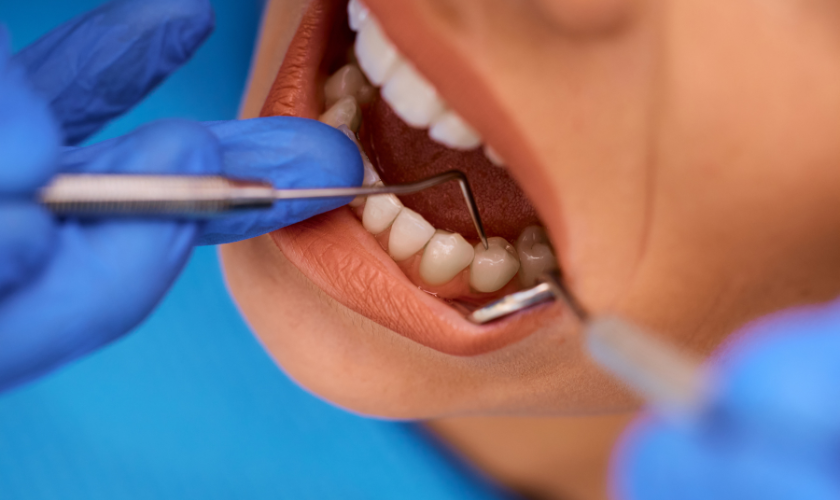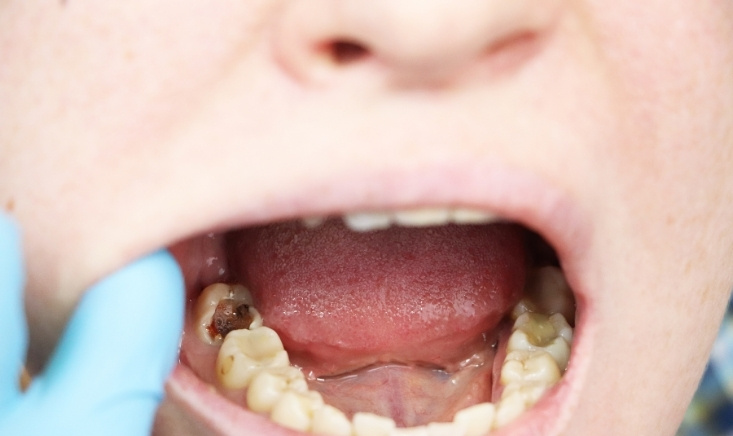2200 AW Grimes Blvd, Suite 100 Round Rock, TX 78665
Spot and Treat Cavities Early: Signs, Symptoms, and Prevention Tips

Cavities rank among the most common dental problems affecting people of all ages. They start small but can lead to significant problems if left untreated. Understanding how to spot and treat them early can save you from pain, extensive dental work, and even tooth loss. This guide will help you identify the signs and symptoms of cavities and explore effective treatment options.
Recognizing the Early Signs
Tooth Sensitivity
One of the earliest indicators of cavities is increased tooth sensitivity. If you experience a sharp pain when consuming hot, cold, sweet, or acidic foods, it might be a sign of tooth decay. This sensitivity occurs because the protective enamel is compromised, exposing the underlying dentin.
Visible Holes or Pits
Another clear sign of this issue is the presence of visible holes or pits in your teeth. These can often be seen or felt with your tongue. Regular dental check-ups are essential, as a dentist can identify cavities that might not be visible to the naked eye.
Toothache
Persistent toothache is a classic symptom of a cavity. This discomfort can range from mild to severe and may worsen when biting down. Toothaches are often a result of decay that reaches the sensitive inner layers of the tooth.
Discoloration
Look out for any discoloration on your teeth. While stains can occur due to various reasons, cavities often cause white, brown, or black spots on the enamel. If you notice unusual discoloration, it’s time to visit your dentist.
Bad Breath
Bad breath or a persistent bad taste in your mouth can also indicate cavities. As bacteria break down food particles and decay, they produce foul-smelling byproducts. Regular brushing and flossing can help, but persistent bad breath warrants a dental check-up.
Seeking Effective Treatments
Dental Fillings
The most common solution for cavities is dental fillings. During this procedure, the dentist removes the decayed portion of the tooth and fills the cavity with a material like composite resin, amalgam, or porcelain. Fillings restore the tooth’s shape and function, effectively preventing further decay.
Fluoride Treatments
For early-stage cavities, fluoride treatments can be highly effective. Fluoride helps to remineralize the enamel, repairing small cavities before they require more invasive treatment. These treatments can be applied as a gel, foam, or varnish during your dental visit.
Dental Crowns
If the cavity is large or the tooth is significantly weakened, a dental crown might be necessary. Crowns cover the entire tooth, providing strength and safeguarding against damage. They are typically made of porcelain, metal, or a combination of both, ensuring durability and a natural appearance.
Root Canals
When decay reaches the tooth’s pulp, a root canal may be needed. This procedure entails removing the infected pulp, thoroughly cleaning the root canals, and sealing them. Root canals save the tooth from extraction and eliminate pain caused by infection.
Tooth Extractions
In severe cases where the tooth cannot be saved, extraction may be the sole option. While this is a last resort, it prevents the spread of infection and alleviates pain. After extraction, options like dental implants or bridges can restore your smile.
Preventing Cavities
Good Oral Hygiene
Maintaining good oral hygiene is crucial for preventing cavities. Brush your teeth twice daily with fluoride toothpaste, floss every day, and use an antibacterial mouthwash. Regular dental visits for cleanings and check-ups are equally essential.
Healthy Diet
A well-balanced diet is crucial for maintaining oral health. Limit sugary and acidic foods, as they can contribute to enamel erosion and promote decay. Instead, choose foods rich in calcium and phosphates, such as dairy products and leafy greens, which strengthen teeth.
Dental Sealants
Dental sealants are a preventive measure that can protect your teeth from cavities. These thin coatings are applied to the chewing surfaces of molars, where decay often starts. Sealants create a barrier against plaque and food particles.
Regular Dental Visits
Seeing your dentist regularly is essential for maintaining oral health. Professional cleanings eliminate plaque and tartar that regular brushing and flossing might miss. Additionally, your dentist can spot early signs of cavities and other issues, providing timely treatment.
Cavities are a common dental issue that can lead to serious consequences if left untreated. By knowing the early signs of cavities and seeking prompt treatment, you can preserve your smile and maintain good oral health. If you’re experiencing any symptoms of cavities, don’t hesitate to reach out to a Round Rock dentist for professional evaluation and care. Stay proactive about your dental health to keep your smile bright and beautiful for years to come!




